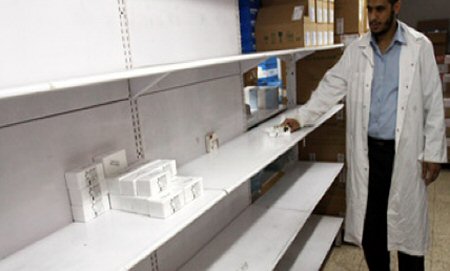The Palestinian Ministry of Health announced that medications were transported into the besieged Gaza Strip, on Monday, for the treatment of cancer.
The Palestinian Minister of Health, Jawad Awad, said that, upon instructions from Palestinian President Mahmoud Abbas and Prime Minister Rami Hamdallah, medications were transported on Monday, to the warehouses of the Ministry of Health in Gaza.
Awad added that it is a basic right and a necessity to send the necessary cancer and pain medications to treat all Palestinians in all northern and southern districts.
The ministry confirmed that the medications dispatched are enough for the next three months.
The ministry has been periodically sending shipments of various medications to its warehouses in Gaza, including last month’s shipment of medications for cancer patients, which in addition to the shipment sent on Monday amounts to about 6 million shekels ($1,612,644).
This decision came following reports from health officials in Gaza concerning major shortages of chemotherapy medications.
According to health officials in Gaza, some 700 cancer patients, including 200 children, who were being treated at the Abdel al-Aziz al-Rantisi Hospital in Gaza, did not receive chemotherapy due to a shortage in medications needed to administer it.
Director of the hospital, Muhammad Abu Silmiya, said that more than 45 of 60 chemotherapy drugs needed at the hospital, were already out of stock by Monday morning.
The al-Rantisi Hospital is one of two medical centers that provided chemotherapy in Gaza.
The Palestinian Ministry of Health stressed that it was never behind schedule on sending cancer medications to Gaza, suggesting that health officials in Gaza should have informed the ministry in advance and in official correspondence, concerning the shortage of medications, in order to provide it in time, not to endanger the life of cancer patients.
The ministry added that it is working hard to provide all health services to the Palestinian people in the besieged Gaza Strip, noting that it continuously provides all hospital necessities, such as medicines and medical supplies, in order to maintain the health system and keep it from collapsing.
(Al Ray archive image)

